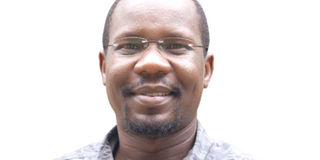My year of random sights, sounds, and some thoughts

The dying days of May found me in Dar es Salaam, in a wealthy neighbourhood. My hotel was neither high-end nor drab. A poolside bar. A casino. An upper-floor bar with a panoramic view of the ocean. Not bad.
It even had a sprinkling of celebrities around and about. Prezzo, Kenyan rapper and former Big Brother housemate, was resident with his kyana. Homeboy Diamond Platnumz was not staying in, but he was recording music from one of the converted rooms, or so I was told. I saw him leave once at lunchtime.
What an entourage. Some money, some glamour and some success in showbiz make for interesting sightings: body guards, bling, babes, sleek wheels.
My hotel was that sort of place.
But why were there virtually no partiers on the weekend I was in town? Friday night — no revellers at the two bars, no gamblers in the casino. It was odd. When the same thing happened the next evening, I asked.
The few patrons present told me it was down to president Pombe Magufuli (the pombe bit uttered with sly emphasis). Those benchmarking trips abroad that would take 20 people either were out or if they had to happen, the delegation would have no more than two or three people.
So all the per diem monies were chocked off. Government meetings had to end just before lunch or start just after lunch. Lunch monies were cut off.
When a highly placed government official came to make a presentation to the group I was training, he ever so politely asked whether we would be kind enough to provide him fuel and some small allowance. His office was dry. Unnecessary travels and meetings had long ceased. So those monies for fuel and out of station were gone.
It turns out that government employees were the source of the shillings oiling especially the leisure industry (bars, hotels, prostitution): allowances of all sort, deliberate over-expenditure on lunch/fuel, kickbacks, old-fashioned stealing. Given that the state remains the largest employer, these shillings were substantial. When Mr Magufuli cut off the flow, there were reverberations, proving just how our economies are based on air, not solid production.
In Uganda today businesses are crying that there is no money in the economy, that the economy is going to the grave, they need a bailout. No one of substance I know at the Bank of Uganda, for example, is overly bothered.
Officials there know that the money squeeze is largely the product of something very good: the Treasury Single Account. This TSA thing is continuing to limit the civil servants’ ability to play games with “our” money.
If the civil servants can’t hold fictitious workshops, they won’t have easy cash to splurge in your bar. You will sooner feel the pain, sister. Let’s produce for export and we will be just fine.
From Dar to Lokichar (the smell of oil is attractive) and Lodwar in Kenya’s Turkana County. That place is charming in its heat, dusty winds, floodplains, camels, and traditional music.
It was cute to discover that our host, a smart and intrepid activist Turkana woman, has family across the border: her uncle is on the district leadership of Moroto, a distance of four hours away from Lodwar. Damn the borders.
It will be interesting to see what happens when Uganda strikes oil in the Kadam-Moroto basin (not much different geologically from the productive South Lokichar over on the other side).
The irredentist idea of Ateker — bringing together the Karimojong, the Turkana and the Nyangatom — could just get sexier, giving headache to some people in Kampala and Nairobi.
To Arua, finally. This town has energy. Looks like it has harnessed the best from the borderlands of DR Congo and South Sudan and concentrated it in one place. With an outsider’s look, business is booming.
The roads are paved – one of a few towns in Uganda that somehow gets stuff done (other municipalities also got “free” World Bank money, but have failed to fix their streets).
The day my team rode into town, Onduparaka (that newest sensation of Ugandan soccer) had just punished Vipers with a 1-0 defeat. Arua town was alive, was hyper, was boiling with glee. Team Onduparaka, started by a couple of entrepreneurial youngsters five years ago, was on a roll.
That’s how, when two days later three of my team members and I found ourselves participating in a pub quiz at Oasis 24-7, we named ourselves Team Onduparaka. We chose the name before we knew there was a quiz category titled Onduparaka. So, as Team Onduparaka, we had to win that one.
We won the author category, tied on African presidents, and did ish-ish on a couple others. Then Onduparaka came. We knew who the captain was, top scorer, club history. Stuff like that. None of which made the quiz.
What made the quiz was one question: match player names with their jersey numbers. We scored 100 per cent zero, and we had a good night. Team Onduparaka had after all won where it matters.
Merry Christmas to our, sometimes, interesting world.
Mr Tabaire is the co-founder and director of programmes at African Centre for Media Excellence in Kampala.
[email protected]
Twitter:@btabaire




